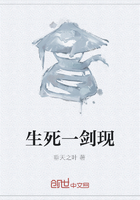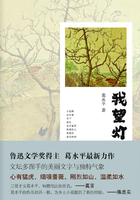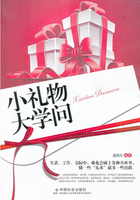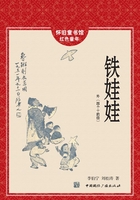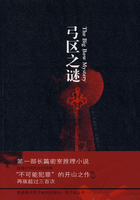Therefore the residents of Hull-House place increasing emphasis upon the great inspirations and solaces of literature and are unwilling that it should ever languish as a subject for class instruction or for reading parties. The Shakespeare club has lived a continuous existence at Hull-House for sixteen years during which time its members have heard the leading interpreters of Shakespeare, both among scholars and players. I recall that one of its earliest members said that her mind was peopled with Shakespeare characters during her long hours of sewing in a shop, that she couldn't remember what she thought about before she joined the club, and concluded that she hadn't thought about anything at all. To feed the mind of the worker, to lift it above the monotony of his task, and to connect it with the larger world, outside of his immediate surroundings, has always been the object of art, perhaps never more nobly fulfilled than by the great English bard. Miss Starr has held classes in Dante and Browning for many years, and the great lines are conned with never failing enthusiasm. I recall Miss Lathrop's Plato club and an audience who listened to a series of lectures by Dr. John Dewey on "Social Psychology" as geniune intellectual groups consisting largely of people from the immediate neighborhood, who were willing to make "that effort from which we all shrink, the effort of thought." But while we prize these classes as we do the help we are able to give to the exceptional young man or woman who reaches the college and university and leaves the neighborhood of his childhood behind him, the residents of Hull-House feel increasingly that the educational efforts of a Settlement should not be directed primarily to reproduce the college type of culture, but to work out a method and an ideal adapted to the immediate situation.
They feel that they should promote a culture which will not set its possessor aside in a class with others like himself, but which will, on the contrary, connect him with all sorts of people by his ability to understand them as well as by his power to supplement their present surroundings with the historic background. Among the hundreds of immigrants who have for years attended classes at Hull-House designed primarily to teach the English language, dozens of them have struggled to express in the newly acquired tongue some of these hopes and longings which had so much to do with their emigration.
A series of plays was thus written by a young Bohemian; essays by a Russian youth, outpouring sorrows rivaling Werther himself and yet containing the precious stuff of youth's perennial revolt against accepted wrong; stories of Russian oppression and petty injustices throughout which the desire for free America became a crystallized hope; an attempt to portray the Jewish day of Atonement, in such wise that even individualistic Americans may catch a glimpse of that deeper national life which has survived all transplanting and expresses itself in forms so ancient that they appear grotesque to the ignorant spectator. I remember a pathetic effort on the part of a young Russian Jewess to describe the vivid inner life of an old Talmud scholar, probably her uncle or father, as of one persistently occupied with the grave and important things of the spirit, although when brought into sharp contact with busy and overworked people, he inevitably appeared self-absorbed and slothful. Certainly no one who had read her paper could again see such an old man in his praying shawl bent over his crabbed book, without a sense of understanding.
On the other hand, one of the most pitiful periods in the drama of the much-praised young American who attempts to rise in life, is the time when his educational requirements seem to have locked him up and made him rigid. He fancies himself shut off from his uneducated family and misunderstood by his friends. He is bowed down by his mental accumulations and often gets no farther than to carry them through life as a great burden, and not once does he obtain a glimpse of the delights of knowledge.
The teacher in a Settlement is constantly put upon his mettle to discover methods of instruction which shall make knowledge quickly available to his pupils, and I should like here to pay my tribute of admiration to the dean of our educational department, Miss Landsberg, and to the many men and women who every winter come regularly to Hull-House, putting untiring energy into the endless task of teaching the newly arrived immigrant the first use of a language of which he has such desperate need. Even a meager knowledge of English may mean an opportunity to work in a factory versus nonemployment, or it may mean a question of life or death when a sharp command must be understood in order to avoid the danger of a descending crane.
In response to a demand for an education which should be immediately available, classes have been established and grown apace in cooking, dressmaking, and millinery. A girl who attends them will often say that she "expects to marry a workingman next spring," and because she has worked in a factory so long she knows "little about a house." Sometimes classes are composed of young matrons of like factory experiences. I recall one of them whose husband had become so desperate after two years of her unskilled cooking that he had threatened to desert her and go where he could get "decent food," as she confided to me in a tearful interview, when she followed my advice to take the Hull-House courses in cooking, and at the end of six months reported a united and happy home.
Two distinct trends are found in response to these classes; the first is for domestic training, and the other is for trade teaching which shall enable the poor little milliner and dressmaker apprentices to shorten the years of errand running which is supposed to teach them their trade.







